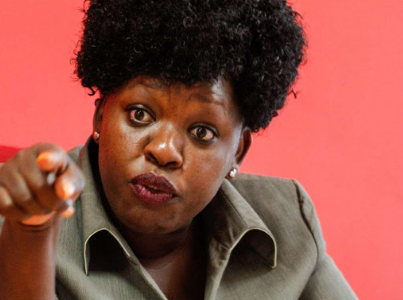Activists have threatened to hold demonstrations against the government’s proposal to scrap the school feeding programme in Arid and Semi-Arid Lands (ASAL) and informal settlements. Janet Ouko, the Executive Director of the Tunza Mtoto Coalition, highlighted that the lack of funding allocation for the programme in the National Treasury’s next financial year budget is a significant concern. She emphasized that discontinuing the programme would negatively impact vulnerable children who rely on school meals for their nutrition and overall well-being.
“This is not acceptable and we are organising protests to protect the programme,” she said.
Ouko cautioned the government against undoing programmes that have worked.
“Since 1980, all feeding programmes for Asal and marginalised regions have existed. Research backing such targeted programmes is available,” she said.
“Denying those children food will seriously affect their existence in schools and education.”
Ouko said moving the programme to another ministry will also not work.
She accused the current regime of being obsessed with cut down education funding, which started with capitation.
North Eastern Kepsha chairperson Hassan Farah said the proposal is as good as closing the schools.
“The nomadic child is currently attracted and retained in school to school by the feeding programme. Many children in Asal areas will not attend school if there is no lunch,” he said.
Silas Obuhatsa, the Chairperson of the National Parents Association, expressed concern that the proposal to scrap the school feeding programme would negatively impact the 100 percent transition initiative. He warned that parents may struggle to support their children on their own, potentially leading to dropouts.
Obuhatsa highlighted the risks associated with dropping out, including exposure to societal vices like crime, drug abuse, and cultural practices such as early marriages. He urged the government to reconsider the proposal and maintain the feeding programme under the Ministry of Education’s oversight.
Obuhatsa also criticized the government for not consulting parents and stakeholders before withdrawing the programme.
Akelo Missori, the Secretary-General of the Kenya Union of Post Primary Education Teachers (Kuppet), echoed these concerns, stating that Kenya is witnessing significant cuts in social spending. Missori criticized the government for increasing university fees, delaying Helb loan disbursements, abolishing the EduAfya health insurance, and providing inadequate capitation to schools.
Missori emphasized the detrimental impact of scrapping the feeding programme, particularly on learners in ASAL regions and informal settlements. He noted that the programme was allocated Sh4.9 billion in the last financial year, which proved insufficient. Belio Kipsang, the Principal Secretary for Basic Education, had requested an additional Sh1 billion for the programme in the supplementary budget.



